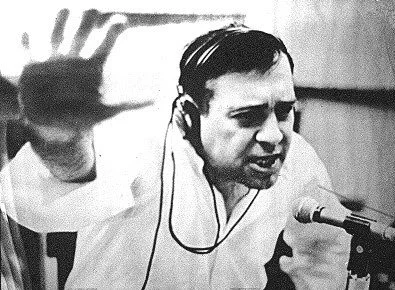Jean, Shel and Whatever It Was Like Then
It had to have been around 1959, half way through my college life. The Penn humor mag (do such things still exist?) had invited Jean Shepherd and Shel Silverstein to talk. I don’t know why I was part of this, I wasn’t an editor at the mag, though they had an office two doors down from the student newspaper and I was good friends with at least one of the editors.
Shepherd and Silverstein must have come to Philly by train. I remember a few of us driving them to 30th St. Station, I guess to return to NY on the PRR, though the memory feels like we were doing something else.
Who was driving? Anyway, Silverstein (not known yet for his best work, mostly for cartoons in Playboy, etc.) was holding onto the lowered window in the back seat and yelling “Slow down, oh shit,” mildly terrified by our erratically rapid automotive pace along Market St.
Shepherd probably said nothing. Earlier (or later?), sitting on a sofa in someone’s living room, he looked regal and removed and said nothing much then, either. That was his style off-air. He put-up-with.
I don’t recall what Silverstein said or did outside that car ride. Shepherd dominated on stage. In the auditorium of the Museum of Anthropology and Archeology (as it was called with simplicity in those days, no “University of Pennsylvania” prefixed), a perfectly round space with a mesmeric roof of concentric circles of tan brick coffers that, to this day, I can’t say is mildly domed or optically-illusioned to appear so, he made fun of other comics – Mort Sahl and Shelley Berman mostly, though not by name.
He quoted from their minimalist routines – about President Eisenhower and the current administration, he looked out at the audience and uttered (maybe) Berman’s unadorned “Golf Balls! John Foster Dulles!” – which undercut his argument that such comedy was pointless, because the audience laughed even at his once-removed rendition.
On the radio, Shepherd was master of the slow build, the upwelling story of accumulated detail, the apparently directionless personal-history ramble that might take 15 minutes to get anywhere, delivered in an intimate, baritone whisper. He might be your mate at the bar or hanging across a tiny sweat-and-sauce stained table at Crappy Joe’s Late Night Snack Shack. He resented unadorned two-word punch lines that depended on the audience already knowing the comic’s frame of reference. He saw that as laziness, verbal corner-cutting.
Even so, I wondered why Shepherd was dissing other comics – not because comics here and there shouldn’t be dissed, but because he, like they, had broken unstated barriers. Though his barriers (mainly loquacity) were less overt then theirs (political).
Given my addlepated interest in old radio shows, I bought a couple encyclopedias of random radio trivia awhile back. They didn’t mention Shepherd.
How in fucking Christ can you talk about the history of radio and not mention Jean Shepherd? He’s the father of “talk radio” (though he’d be appalled at what it has become). When told by his bosses that he blabbed too much between playing records, he stopped playing records and just talked, into the wee hours of the morning.
Are you a Garrison Keillor fan? I am, sort of, when I think of it. But without Jean Shepherd, there would have been no Garrison Keillor. The shtick, the voice, the outlook, the Keillor assumptions – they’re all Shepherd.
Watching him sitting on the couch, later (earlier?) tooling along Market Street in that open-windowed car, I wasn’t impressed with Shepherd as a person. I got the feeling you could have carved a nicer human being from a bar of soap. Silverstein was a more approachable guy, a voluble OK dude. But Shepherd should be remembered, even canonized. He changed outlooks in a way few of us ever will.
by Derek Davis

